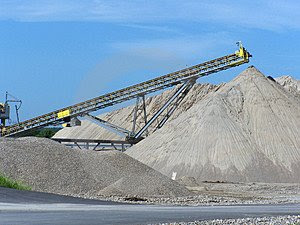 The 61st Montana Legislature is hopping; every House of Representatives committee is very busy trying to hold hearings for general bills (those for policy changes, not revenue or appropriation bills) before this coming Friday, February 20. We’re up against the Transmittal deadline; that’s when policy bills that have passed committee and passed the House get sent, or transmitted, to the Senate, and Senate bills are transmitted to the House.
The 61st Montana Legislature is hopping; every House of Representatives committee is very busy trying to hold hearings for general bills (those for policy changes, not revenue or appropriation bills) before this coming Friday, February 20. We’re up against the Transmittal deadline; that’s when policy bills that have passed committee and passed the House get sent, or transmitted, to the Senate, and Senate bills are transmitted to the House.
Time is short, and there is much work to do.
Those of us carrying bills to refine or establish state policy are as busy as bees. Last week, I presented eight bills. This coming week, it’ll be TEN.
For some perspective, I prepare to present each bill by researching the topic,
calling and emailing and meeting with parties interested in the issue, studying the state statutes, preparing testimony, recruiting witnesses, and anticipating concerns. I’m not an attorney, but I explain this as though each bill is a court case, and the research, testimony, case law, etc. must be studied for the case.
To present eight bills in a week, or ten, or one, that process plays out over and over again (at least, it does for me). I believe it’s my responsibility to know the issue, explain why and how state law should address the problem, present the arguments for the bill, inform and educate witnesses, inform and educate House or Senate committee members, be knowledgeable about the issue to answer questions of my fellow legislators in committee and, if the bill passes the committee, on the floor of the House of Representatives.
During my first campaign, a colleague told me to pace myself; that it was a marathon, not a sprint. I’ve since formed the opinion that the Legislative Session, 90 days every two years, is a marathon OF sprints!
Gravel Pit Redux
On Friday, the House of Representatives committee on Natural Resources took executive action on the gravel bills heard during the week. Executive action is the discussion of committee members about a bill and the vote on the bill to pass it–or not–from the committee.
I had presented two bills Monday, for public notice and public hearing of a proposed gravel pit operation with adjacent neighbors, and for county authority to establish conditional use permits for the livability issues (dust control, weed management plans, truck routes, traffic control, hours of operation, lights at the site, noise) that the Department of Environmental Quality (DEQ), which issues gravel mining permits, does not manage. On Wednesday, I presented three bills: one for annual fees on gravel pit operators to fund the Opencut Mining Division of the DEQ, another to require that 25% of an operation at a time is either undisturbed or reclaimed land and to limit the expansion on any one permit to 50% of the original permit acreage, and a third to require monitoring wells and water samples and surface water runoff control for gravel pits that dig into the groundwater aquifer. 
There was a furious effort on the bills from proponents and opponents. The committee chairman and others approached me with amendments, suggestions, and messages from interested parties, for and against.  On Friday, after Chairman Milburn told me that there were two bills he and his party could support, I made a motion to create a committee bill to address public notice/hearings and annual fees. The committee discussed all the other gravel bills and voted upon them, 9-9, on party line votes (Democrats voting positively to pass the bills from committee, Republican members voting against.) The bills were tabled in committee. There was committee agreement to support a study resolution, too, to investigate much more thoroughly in the interim all of the issues that the failed bills illustrated, and the efforts across the state underway to solve them. This is the way of negotiation and compromise; some bills fail, some ideas will be fleshed out more thoroughly and (hopefully) pass the House to advance to the Senate, then to the governor’s desk, then into statute, and more work is yet to be done in an interim study.
On Friday, after Chairman Milburn told me that there were two bills he and his party could support, I made a motion to create a committee bill to address public notice/hearings and annual fees. The committee discussed all the other gravel bills and voted upon them, 9-9, on party line votes (Democrats voting positively to pass the bills from committee, Republican members voting against.) The bills were tabled in committee. There was committee agreement to support a study resolution, too, to investigate much more thoroughly in the interim all of the issues that the failed bills illustrated, and the efforts across the state underway to solve them. This is the way of negotiation and compromise; some bills fail, some ideas will be fleshed out more thoroughly and (hopefully) pass the House to advance to the Senate, then to the governor’s desk, then into statute, and more work is yet to be done in an interim study.
HB 359 (Pomnichowski) Public notice and hearing for opencut applications; failed, rewritten into committee bill with amendments
HB 77 (Nooney) Notification requirement for proposed gravel pit operations; tabled in committee
HB 313 (Pomnichowski) Revise opencut mining laws; county authority to condition use; failed 9-9, tabled in committee
HB 319 (Cohenour) Require proof of other permit applications for opencut mining; tabled in committee
HB 429 (Pomnichowski) Annual fees for opencut mining operations; failed, rewritten into committee bill with amendments
HB 446 (Pomnichowski) Restrictions on surface water runoff re: opencut mining; failed 9-9, tabled in committee
HB 447 (Pomnichowski) Reclamation requirements for opencut mining; failed 9-9, tabled in committee
The most impressive part of the week were the dedicated and tireless efforts of people with firsthand, personal experience with gravel pit operations; neighbors, county task force members, commissioners, scientists, hydrogeologists, reclamation experts–all who stopped their lives to come to Helena to testify on the bills. I’m humbled to try to enact in statute the solutions they’ve already formed in so many parts of the state: the Gallatin Valley, the Flathead, Ravalli County, Lewis and Clark County, Billings, elsewhere. It’s a statewide issue; I’ll do all I can to advance it to work much better for everyone.
Many thanks to all of you. Best regards from Helena. New leopard print shoes debuting tomorrow. –JP
Anonymous says:
Here’s wishing some Gatorade to you, JP!